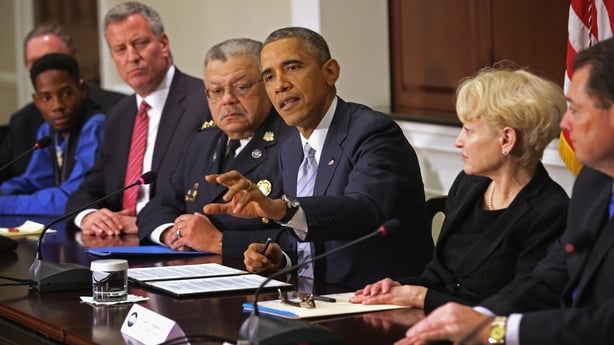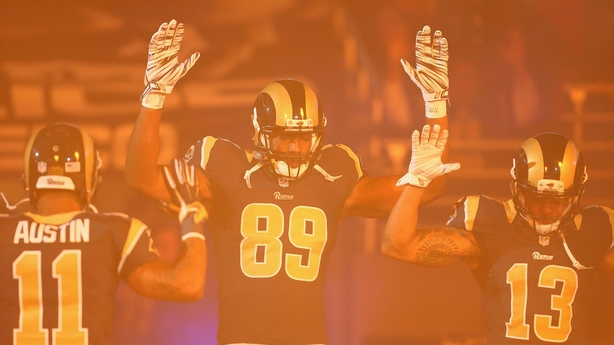US President Barack Obama will seek to release funds aimed at equipping more US police officers with body cameras following the racially charged fatal shooting of a black teenager in Ferguson.
Calls for police officers to wear micro-cameras fitted to uniforms have mounted since Michael Brown was shot dead in the Missouri town in August.
The decision not to charge the white police officer responsible for the shooting triggered riots and nationwide protests last week.
It also reignited the debate over how minorities are treated by law enforcement.
Mr Obama is proposing a three-year, $263 million (€210m) investment package, which will increase the use of body-worn cameras and expand training for law enforcement agencies.
The goal of the investment is to have 50,000 more body cameras in use within three years, the White House said in a statement.
Body cameras are already worn by police officers in some US cities and their use is being trialled in New York and Washington.
In the Washington programme, recordings not used for investigations are destroyed within 90 days.
Mr Obama also made a pledge to use his last two years in office to address the "simmering distrust" between police and minority communities.

Speaking after a lengthy session with mayors and national civil rights leaders, he said he would set up a task force to study how to improve community policing.
He is to consider imposing tighter controls on the proliferation of military-style weaponry and equipment provided to many police departments, he said.
The US president called for a sustained conversation in each region of the country on how to improve community policing.
He vowed to address "simmering distrust that exists between too many police departments and too many communities of colour".
Those at the event emerged from the talks saying they believed Mr Obama was serious about responding in a determined way to Ferguson, that their complaints have not fallen on deaf ears.
Civil rights activist Rev Al Sharpton said: "I will gladly be calling the parents of Michael Brown and of Eric Garner in Staten Island to let them know what happened in the meeting, but what happens after the meeting will determine whether we just had a feel-good session or whether we're moving toward change.
"I believe we're moving toward change."
Eric Garner, a 43-year-old black man, died in July on New York's Staten Island after being put in a police chokehold.

Elsewhere, five St Louis Rams players supported a protest over the controversial shooting during their NFL game against the Oakland Raiders last night.
The group took to the field with hands raised to support the "hands up, don't shoot" gesture utilised by the protesters.
"We just understand that it's a big tragedy and we hope something positive comes out of it," Rams receiver Stedman Bailey told reporters.
The St Louis Police Officers Association said in a statement it was "profoundly disappointed" by the act.
About 40 or 50 protesters briefly blocked a street outside Edward Jones Dome in St Louis after the game.
They later marched through the surrounding streets chanting "black lives matter".

